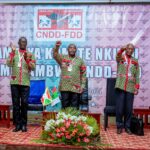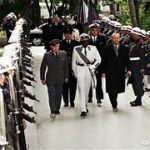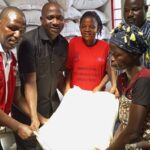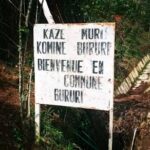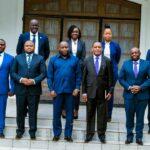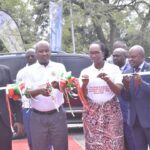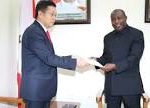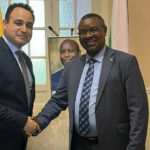The latest rounds of crisis in Burundi began in April 2015 with the announcement of President Pierre Nkurunziza’s bid for a third term. As a country still recovering from an ethnic-based civil war claimed 300,000 lives, Burundi is one of the poorest countries in the world. Since the start of the fighting in April, reports suggest that around 400 people have died and 200,000 have fled the country.
Despite the Burundian government adamant assurances that the unrest in the country is because of terrorists and the attempted coup, the international community is reporting about crimes against humanity. Most importantly the press releases that came out of the African Commission on Human and People’s Rights’ fact finding mission and AU’s human rights observers report have served as the basis for the Peace and Security Council (PSC) to convene its 565th meeting where it adopted a decision that has been called ‘ground breaking’ and a ‘much needed move’.
In the mandate given to the African Union under its Constitutive Act, Article 4(h) “the right of the Union to intervene in a Member State pursuant to a decision of the Assembly in respect of grave circumstances, namely: war crimes, genocide and crimes against humanity.” Also in the protocol establishing the African Union Peace and Security Council Article 7, the AU was given a mandate to send in peacekeeping missions. The African Union has been sending out peacekeeping missions since 2003. The first AU peacekeeping mission (African Union Peacekeeping Mission to Burundi – AMIB) was sent to Burundi to facilitate ceasefire of the civil war in April 2003. Despite that fact that by rule of rotation Burundi is the designated president of the PSC for December, the council has decided to deploy a peacekeeping mission on 17th December 2015. As it is the required by PSC regulations, the Burundian delegation was asked to remove themselves from the deliberations.
In the communiqué, the AU-PSC decided to deploy the MAPROBU (African Prevention and Protection Mission in Burundi) with 5000 military personal for a period of six months with the possibility of extension. It is mandated to:
Prevent any deterioration of the security situation, monitor its evolution, and report developments on the ground;
contribute, within its capacity and in its areas of deployment, to the protection of civilian populations under imminent threat;
contribute to the creation of the necessary conditions for the successful holding of the inter‐Burundian dialogue and to the preservation of the gains made through the Arusha Agreement For Peace And Reconciliation In Burundi;
facilitate, in collaboration as appropriate with other international actors, the implementation of any agreement the Burundian parties would reach, including, but not limited to, the disarmament of militias and other illegal groups, the protection of political personalities, and other actors whose security would be threatened; and
Protection of AU personnel, assets and installations;
The communiqué also welcomed the Ugandan mediation for an inter-Burundian dialogue and urged the UNSC to adopt the communiqué under Chapter 7 of the UN charter.
This communiqué from the PSC has been called a ‘bold and necessary’ move for the AU. Throughout its experience of peacekeeping missions by the AU, it has been reserved from invoking military intervention without the consent of the host country. It has either waited for a mandate (invitation) which leads to the limited and difficult access (Sudan-2008) or it has politically compromised by recommending ceasefire and mediation in the case of the Libyan conflict in 2011. The fact that the AU has never invoked the Article 4(h) intervention will be a major challenge both technically and politically. In the past even when the evidence of the crimes against humanity was overwhelming, the AU assembly has never resorted to justifying military action under Article 4(h). This new move from the AU will raise questions like ‘why now?’ and ‘why Burundi?’.
The AU-PSC has not yet authorised an article 4(h) intervention for Burundi, but only strongly implied that it would likely do so. For the full authorisation and implementation of the ‘humanitarian military intervention’, the AU faces major technical and political challenges. One of these is the need for United Nations Security Council (UNSC) approval under Article 53 of the UN charter. Under its mandate and the adoption of the African Standby Force (ASF), any military action taken by the AU except self-defence would need a UN Security Council (UNSC) resolution. Also in light of the fact that the Burundian government has rejected the deployment of the MAPROBU, getting the approval of the UNSC is highly uncertain. The only precedent for this case is the UNSC resolution 1973, which authorised the military intervention mission to Libya in 2011 by invoking the R2P (Responsibility to Protect). Both the UN Charter and the AU constitutive act state that the use of military force against a sovereign state is permitted only under two circumstances: in case of self-defence or under UNSC exclusive mandate. However, it is suggested that the PSC’s decision did not follow either.
Composition of the MAPROBU is one more issue that will come into question. Who will be the primary lead state? From where will the 5000 military, police, and civilian personnel be recruited? Throughout the communiqué, the PSC has referred to the East African Standby Force (EASF) as a major option. The EASF is the regional organisation whose mandate is to enhance peace and security in the Eastern Africa region. It is one of the five regional multidimensional Forces of the African Standby Force (ASF) consisting of military, police and civilian components with pledges from all its 10 members (Burundi, Comoros, Djibouti, Ethiopia, Kenya, Rwanda, Seychelles, Somalia, Sudan, and Uganda). However if the mission is approved, it would be the first time that the EASF has been mobilised and deployed. Furthermore, it has been speculated that the members of the MAPROBU will be recruited from Kenya, Ethiopia, and Uganda. Yet, the MAPROBU is getting mixed reception: South Africa has pledged its troops in support of the mission; Tanzania and Rwanda rejected it; and other countries have so far kept quiet.
Another challenge is that of a contingency plan. The communiqué gave the Burundi government four days to accept the MAPROBU, but the government have rejected outright the plan as an ‘invading force’. “Burundi is clear on the matter: it is not ready to accept an AU force on its territory,” deputy presidential spokesman Jean-Claude Karerwa told the AFP. “If AU troops came without the government’s approval, it would be an invasion and occupation force and the Burundi government would reserve the right to act accordingly.”
Since the Burundian government rejected the deployment of the MAPBORU, the AU must come up with a contingency plan either for the deployment or to put diplomatic pressure on the government. Even if the UNSC approves this mission, the reception the troops will receive in Burundi could be too hostile based on the government’s response so far. The questions then are: will the mission be protecting the civilian population or fighting the government forces? Will it still be considered a protection mission if it is overwhelmed by the security forces in the country?
The Institute for Peace and Security Studies
Addis Ababa University

